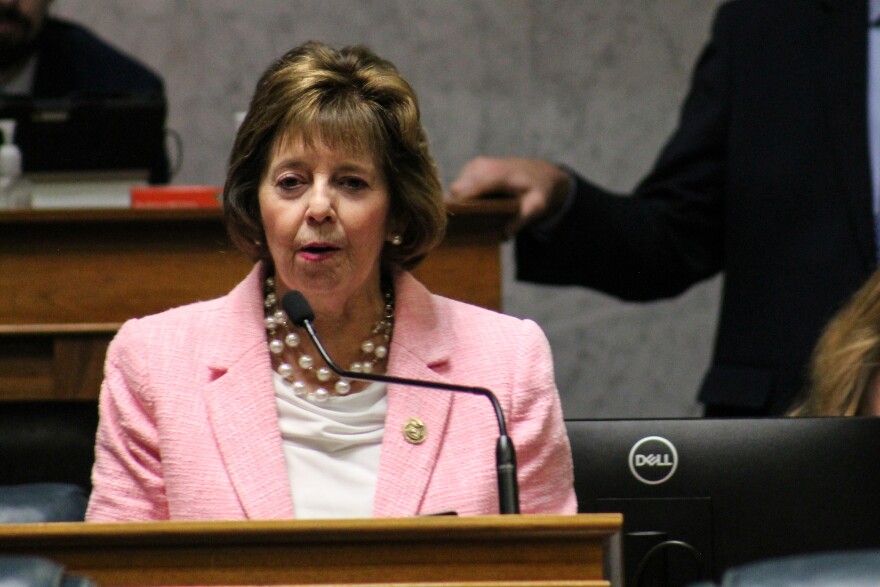A Republican-led bill to address Indiana’s decline in elementary literacy passed out of a Senate committee on a party-line vote Wednesday. The bill’s author framed a key piece of the legislation, a requirement to hold back students who struggle to read at the end of the third grade, as essential.
"We are at a crisis level. We can't wait,” said Sen. Linda Rogers (R-Granger) of the nearly 1 in 5 students who failed the third grade reading test last year. “We have to start this as soon as possible.”
Whether to retain students in third grade is now the focus for policymakers and educators. Last year around 96 percent of students who did not pass IREAD-3, the state reading assessment, advanced to fourth grade, according to state data.
Senate Bill 1 would require reading skill tests begin in kindergarten and parents be informed of the results. It would create summer school options for students who need reading intervention. Students would also take the IREAD-3 exam in second grade.
Most who testified during the hearing in the Senate Committee on Education and Career Development agreed students need more support to improve reading fundamentals like phonics and comprehension — but they disagreed how to do that.
Sen. J.D. Ford (D-Indianapolis) voted against the bill. He said the root issues hindering students' reading development are not addressed in the legislation.
“I think we have the bill and the language and the policy, but I don’t see anywhere where it addresses the actual reason as to why they’re not reading by the third grade,” he said.
Ford and other Democratic lawmakers suggested other changes, like increasing access to early education and lowering the compulsory age for attending school from 7 years of age to 5.
Join the conversation and sign up for the Indiana Two-Way. Text "Indiana" to 765-275-1120. Your comments and questions in response to our weekly text help us find the answers you need on statewide issues, including our project Civically, Indiana and our 2024 legislative bill tracker.
They also said the retention piece of the legislation should be postponed until a law that required an overhaul of the state’s reading curriculum is fully in place. Last year, the Indiana legislature passed a bipartisan law that requires districts to use reading curriculums that follow the science of reading — but that is not expected to happen until the 2025-26 school year.
Indiana School Boards Association’s Terry Spradlin said he supports the bill but also asked that retention requirements be delayed. An amendment by Sen. Andrea Hunley (D-Indianapolis) sought to do just that but it was defeated.
“We’re at a crisis level,” Rogers said. “We can’t wait, so I think we need to move forward with the retention piece the way it is now. …We don’t want another child that doesn’t know how to read to move on.”
Representatives from Indiana PTA, English language learner group INTESOL and Decoding Dyslexia Indiana spoke out against the retention aspect of the bill. Some people worry retaining third grade students could have negative social and emotional consequences.
Some students who don’t pass the IREAD-3 would be exempt from repeating third grade. Those who are proficient on grade level math but struggle in reading would advance to fourth grade. There are also provisions for English language learners and students who have intellectual disabilities.
Data from the IDOE shows the number of students who do not receive exemptions after failing the test has grown disproportionately compared to the number of students who do receive exemptions.
The committee passed an amendment to the bill that requires summer school teachers who provide reading intervention to be trained in the science of reading.
The bill advances to the Senate Appropriations Committee next.
WFYI’s Eric Weddle contributed reporting to this story.
Kirsten is our education reporter. Contact her at kadair@wfyi.org or follow her on Twitter at @kirsten_adair.


